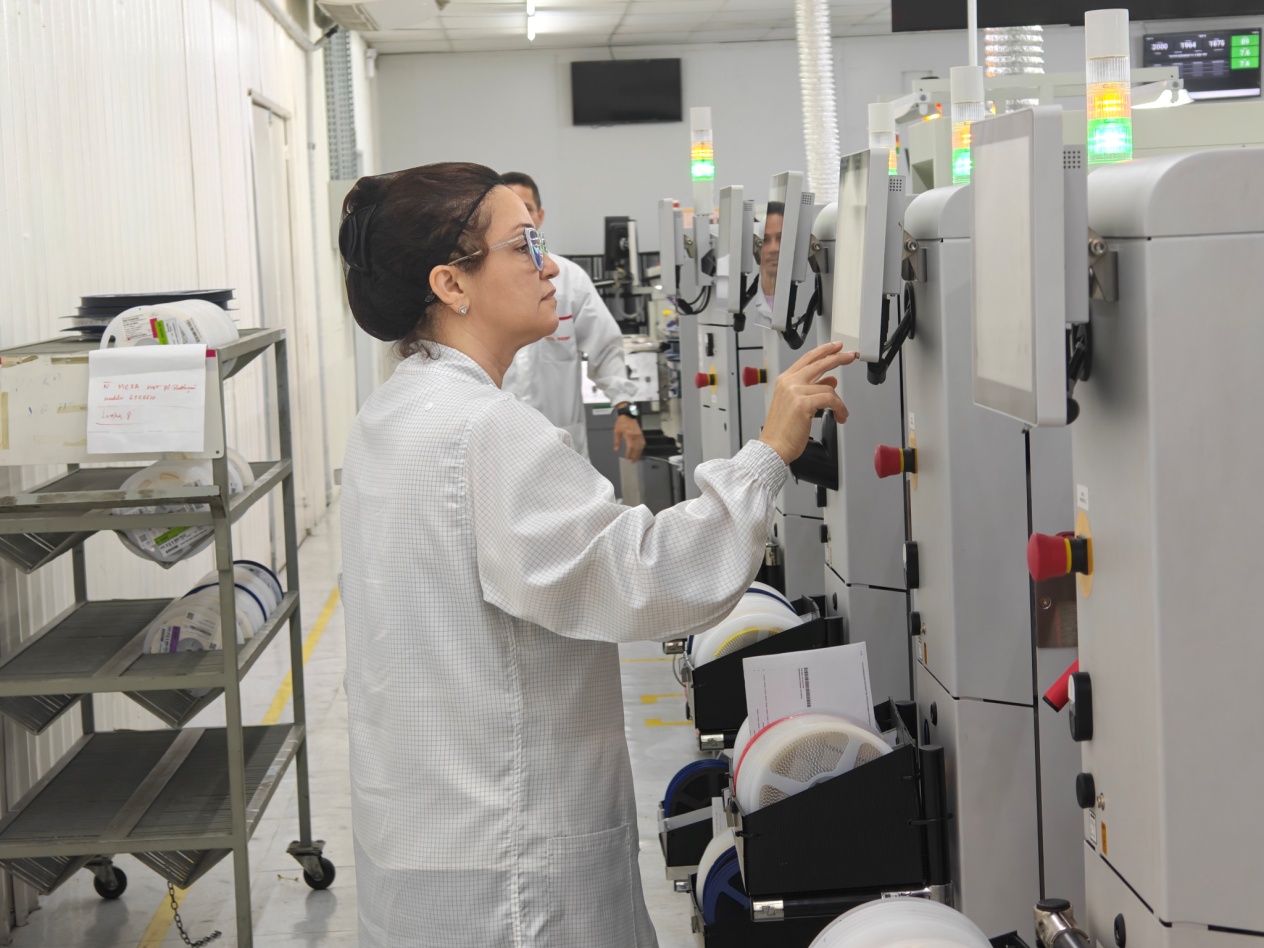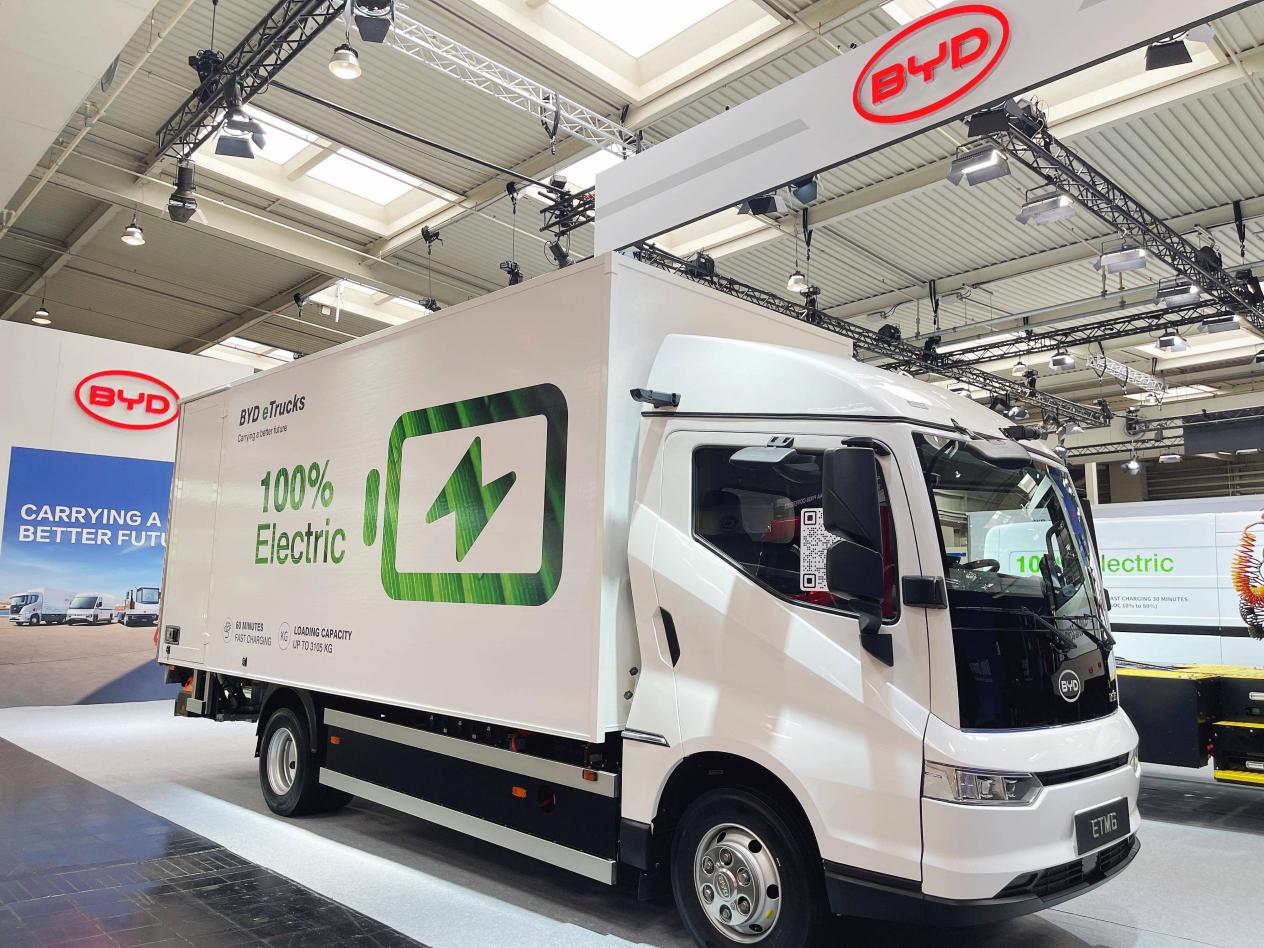China serves as both a major destination for foreign investment and a leading source of outbound investment.
According to a statistical bulletin released recently, China's outward foreign direct investment (FDI) in 2024 reached $192.2 billion, accounting for 11.9 percent of the global total - an increase of 0.5 percentage points from the previous year.
This marks the 13th consecutive year that China has ranked among the top three globally and the ninth straight year with a share exceeding 10 percent in terms of outward FDI. By the end of 2024, China's outward FDI stock had reached $3.14 trillion, ranking among the global top three for eight consecutive years.
"Economic globalization is an unstoppable trend. Chinese enterprises going global is about mutual benefit and win-win outcomes - we deliver quality supply, job opportunities, and tax revenues to local communities, while enterprises themselves achieve robust growth. We must continue to make good use of both domestic and international markets and resources," said Wu Sanqiang, secretary to the Board of China International Marine Containers (Group) Co., Ltd. (CIMC).
Having operated internationally since 1997, CIMC now maintains over 300 foreign affiliates with manufacturing facilities and R&D centers across nearly 20 countries and regions, employing approximately 4,700 overseas staff.
China continues to champion constructive economic globalization, advancing practical cooperation to stabilize global industrial and supply chains while actively supporting worldwide economic growth. Notably in 2024, China's outward investment stimulated $211 billion in associated goods exports, growing 13% annually and accounting for 5.9% of the nation's total goods exports.
Chinese enterprises abroad registered $3.6 trillion in sales revenue and paid $82.1 billion in taxes to host countries and regions, while employing 5.021 million people, 65.8 percent of whom were local hires.
Chinese investment is increasingly pivoting toward emerging markets. "In recent years, new shifts have emerged in Chinese enterprises' global expansion, with investment moving from a focus on developed countries toward emerging markets such as Southeast Asia and the Middle East," Wu noted. This year, CIMC established a regional office in Riyadh, Saudi Arabia, working with subsidiaries such as CIMC Vehicles to support the country's energy transition.

An employee of a TV manufacturing base of Chinese home appliance giant TCL in Manaus, Amazonas, Brazil checks the operation of equipment. (People's Daily/Xu Hailin)
From Malaysia's Pavilion Damansara Heights complex to Pakistan's Peshawar-Karachi Motorway and Cambodia's Techo International Airport, infrastructure projects built by China Construction Third Engineering Bureau Co., Ltd. have been steadily expanding across emerging markets.
This aligns with broader patterns: "In the first half of this year, 60 percent of overseas investment by Chinese contractors went to Belt and Road partner countries, especially in Southeast Asia, the Middle East and Central Asia, giving a strong boost to international infrastructure connectivity," said Fang Qiuchen, Chairman of the China International Contractors Association. He noted that investment priorities are shifting from traditional energy toward renewables, with green investment steadily rising, opening up broader space for development.
Sinolong New Materials based in Xiamen, southeast China's Fujian province develops and manufactures ultra-thin capacitor films, key materials for the new energy sector, supplying customers in over 40 countries and regions. In 2024, the company established its first overseas production base in Indonesia. "This allows us to respond more swiftly to customer needs in Southeast Asia, further enhancing our global competitiveness and brand influence," said chairman of the company Yang Qingjin.
A growing number of Chinese enterprises are proactively going global to explore new markets. By the end of 2024, Chinese investors had established 52,000 overseas enterprises in 190 countries and regions, including 19,000 in Belt and Road partner countries, with overall operations in good shape. Seventy percent of these enterprises were profitable or breaking even.

A pure electric box truck manufactured by Chinese carmaker BYD is exhibited at the IAA Transportation in Hannover, Germany. (People's Daily/Liu He)
In Kazakhstan, Allur Group has become a rising star in the local auto industry, with production and sales steadily increasing year after year. "Since investing in Allur Group, we have introduced Chinese brands such as JAC, Jetour, and Hongqi to the country," said a representative from Genertec International Holdings Co., Ltd.
On Sept. 7 local time, Chinese battery giant CATL unveiled its NP3.0 battery safety technology in Munich, Germany. In Europe, CATL has set up three major production bases in Germany, Hungary and Spain. From pioneering new models of battery swapping to breakthroughs in recycling technologies, the company is gaining growing recognition among European carmakers with its distinctive strengths.
As China's industrial structure continues to upgrade, high-tech products, advanced equipment, and green and low-carbon goods are becoming new growth drivers of Chinese manufacturing abroad.
With long-term strengths in independent research and development and industrial clusters, more Chinese enterprises are moving from simply exporting products to exporting brands, capital and technology, expanding their global presence and securing greater development opportunities. By venturing abroad, Chinese companies are not only broadening horizons for themselves, but also injecting fresh momentum into global markets.
(Source: People's Daily)
